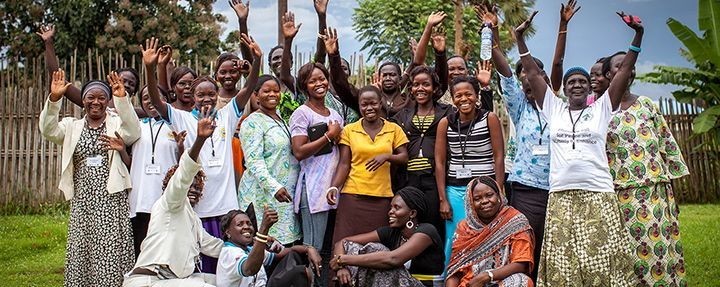Several South Sudanese political and civil society activists have raised a red flag and expressed concern about the non-compliance of the signatories to the peace agreement with the 35 percent representation at all levels of government allocated to them.
The September 2018 peace agreement provides for a 35% quota for women’s participation in the transitional government. South Sudanese women hope this key provision will be a catalyst for change in the country.
However, after President Salva Kiir formed the unity government in February last year, civil society organizations pointed out that the parties did not commit to implementing the percentage of women's participation in government and threatened to sue.
Jamie Lokok, an activist and observer of the peace agreement, told Radio Tamazuj that the SPLM party led by President Salva Kiir did not implement the 35 percent quota for women, especially in ministerial portfolios and state governors. He urged the parties to include women in decision-making processes in their parties as part of the positive implementation of the 35 percent affirmative action.
The activist believes that the reason for the lack of women representation is due to the lack of women in decision-making positions and that political parties headed by men have failed to empower a sufficient number of women in leadership positions.
"The SPLM has failed to implement the 35%. Not only that, but all other parties do not have plans and strategies to empower women," Lokok said.
He pointed out that the SPLM-IO is the only party which committed itself to the representation of women and appointed a female governor for Western Bahr el Ghazal state.
Manawa Peter Gatkuoth, a senior member of the SPLM-IO led by Dr. Riak Machar, says that his party implemented the agreement in letter and spirit by representing women at all levels of state and national government including the executive and legislative bodies.
"Sarah Cleto was appointed as governor of Western Bahr El Ghazal State, along with other women leaders, to high-level positions per the agreement," Gatkuoth said.
He believes that the lack of political will on the part of the other parties to the agreement contributed to the muffling of women's rights in the transitional government, stressing that women's representation in government bodies is part of the reform agenda and women's empowerment.
"Some parties to the agreement believe that the agreement is for the sake of political stability, and others believe that giving women a percentage in the government is a way to employ them or recognize their role in the peace process," Gatkuoth added.
Peter Mayen Majongdit, a representative of the Other Political Parties (OPP) that signed the peace agreement, admitted that they had failed to implement the 35% quota for women and attributed this to their low share (of allocated positions) in the agreement compared to the other parties.
Majongdit said the President Kiir-led SPLM violated the 35% quota for women’s participation in governance and demanded that they abide by it.
He added, "It is not too late for Kiir to review its share of the agreement and appoint women to the executive and legislative bodies and at the state and county levels."
Despite the large number of women appointed to the states, the proportion is less than the quota set out in the agreement.
At the beginning of this year, some South Sudanese civil society organizations threatened to file a lawsuit against the signatories to the peace agreement for their lack of commitment to representing women according to the percentage specified in the agreement.
Rajab Mohandis, a civil society activist, says that the SPLM party led by President Kiir Salva did not abide by the proportion of women as stipulated in the peace agreement.
Mohandis, who represents civil society in the Reconstituted Joint Monitoring and Evaluation Commission (R-JMEC), explains that they raised concerns in the forum about women's representation, revealing that their pressures in the commission somewhat contributed to the appointment of women in state governments and the National Legislature.
He blamed the leaders of political parties for not appointing women to government positions, saying that civil society calls on women in political parties to press for the restoration of their usurped rights.
Reec Malual, a South Sudanese lawyer, said that the peace agreement stipulated giving women 35% of participation in the various levels of the transitional government but some parties violated this clause.
The human rights advocate calls on women to continue demanding their representation in decision-making positions in the reconstituted transitional government.
The Revitalized Transitional Government of National Unity (RTGoNU) consists of the previous transitional government led by President Salva Kiir, the Sudan People’s Liberation Movement-In-Opposition (SPLM-IO), the South Sudan Opposition Alliance (SSOA), the Former Detainees (FDs), and Other Political Parties (OPP).
The unity government is yet to form legislative assemblies in the states while the members of the national legislature are yet to be sworn in.




